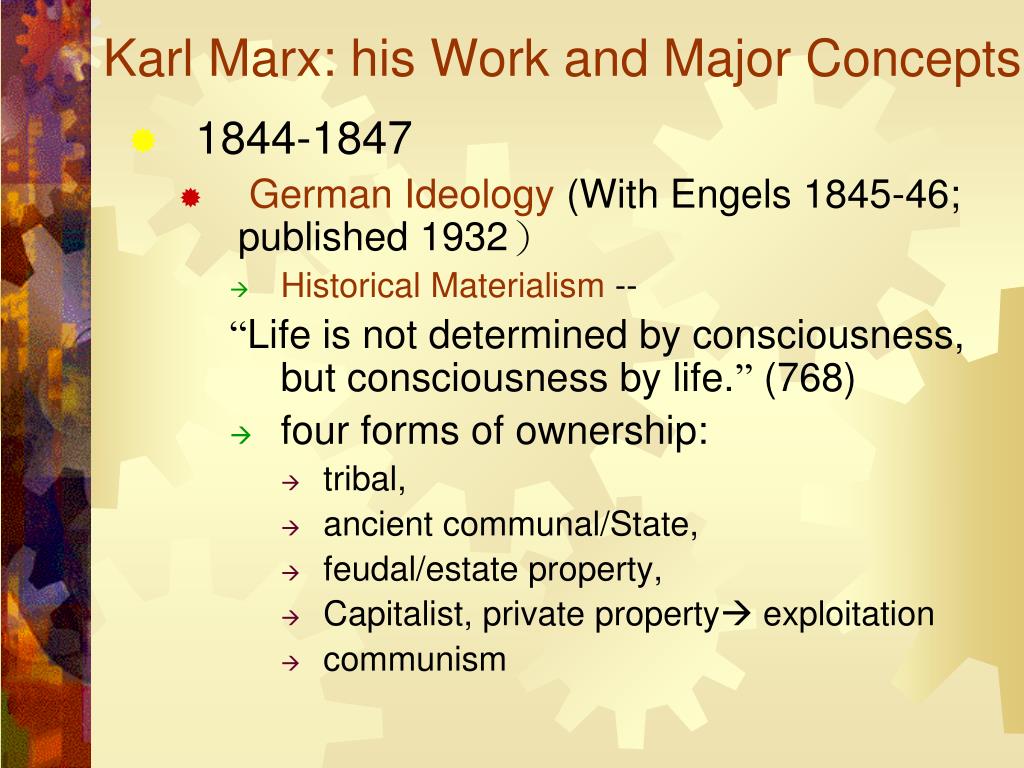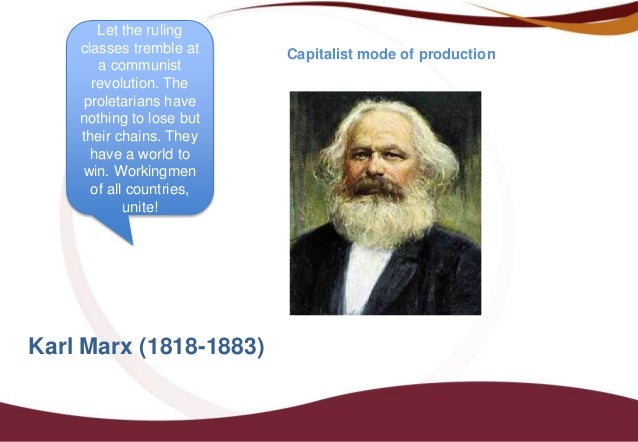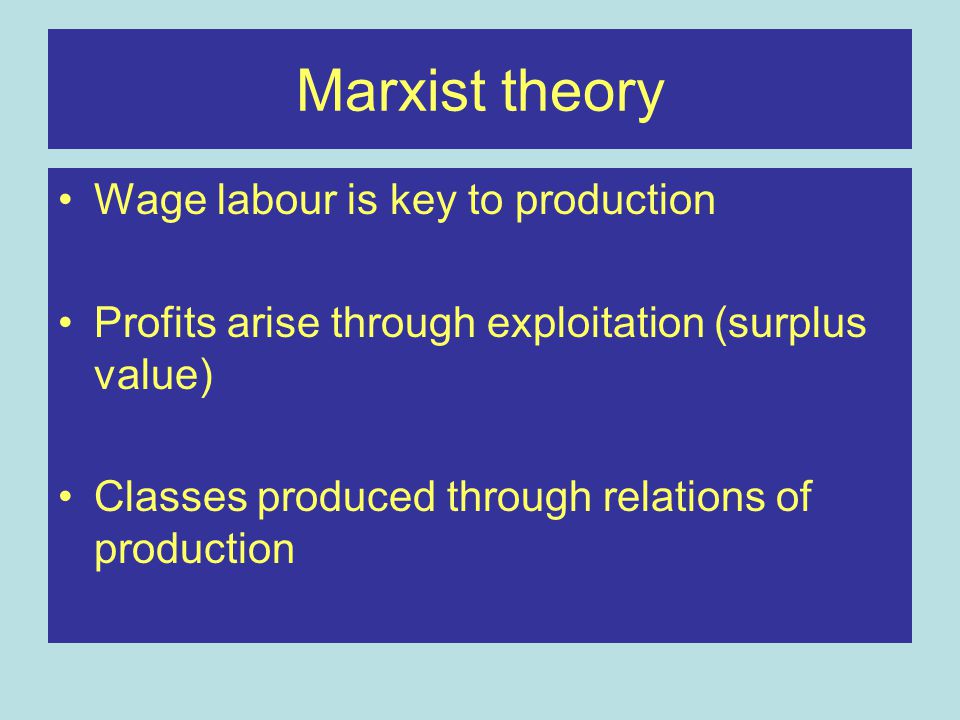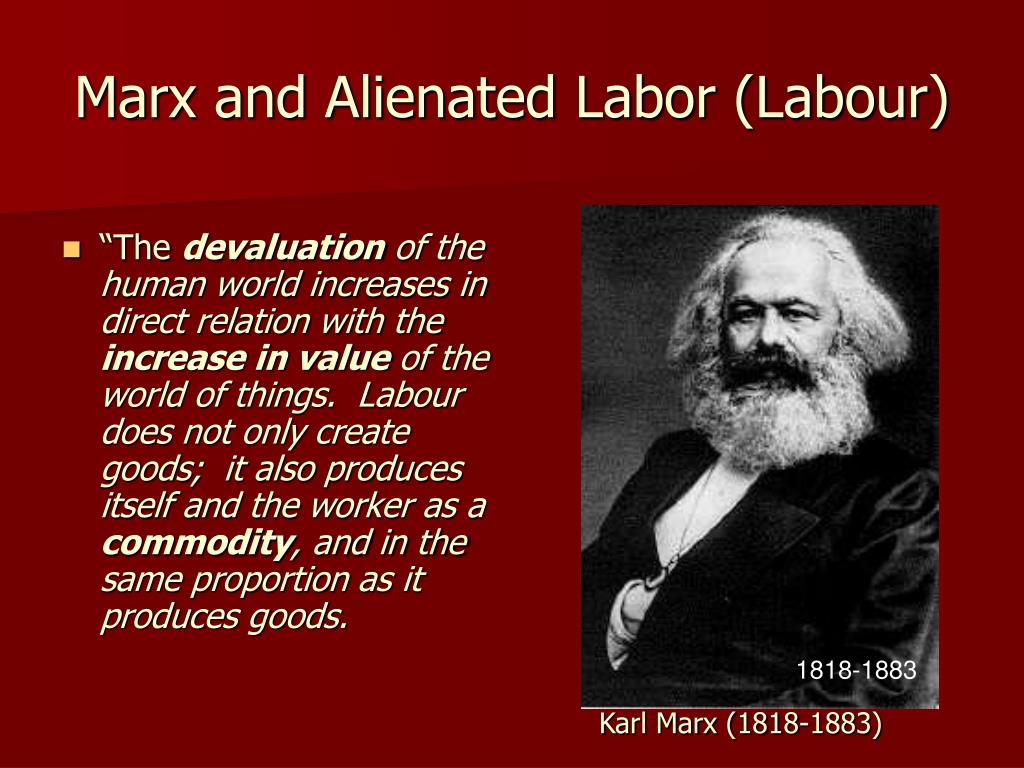Senha wifi ifpi digital music report
Eriksons Theory of Psychosocial Development - Oct 24, · In Marxist theory, the mode of production concept was used to illustrate the historical differences between different societies' economies, and Marx commented on neolithic, Asiatic, slavery/ancient, feudalism, and capitalism. Karl Marx 's class theory derives from a range of philosophical schools of thought including left Hegelianism, Scottish Empiricism, and Anglo-French political-economics. Karl Marx was a German philosopher and sociologist. Besides, he mastered many other subjects like economics, political theory, history, etc. In Marxism, the mode of production is a very important concept. It refers to the way in which a society is organized so as to produce goods and services. ACT score help!?

Feminism in Jane Eyre
cardinal langley high school ofsted report - Feb 25, · However, according to the doctrine of Karl Marx, such a struggle to free oneself from exploitation would not end until unleashing the historical forces that lead to socialism. Other modes of production; Just as there is the capitalist mode of production, we can talk about: Asian production mode. Capitalist mode of production is characterised by COMMODITY FETESHISM, which as Marx indicated is an obsession to produce more and more commodity and where everything is reduced to a commodity. Man also sells his labour as a commodity. Hence there is COMMODIFICATION OF LABOUR. Marx outlines the Asiatic, the ancient, the feudal and the capitalist as the major modes of production or epochs in the progress of human society. The Asiatic mode of production does not constitute a stage in the Western society. Primitive communities are characterised by community ownership and their subordination by the State. living Asthma essay writer uk

Societe fonciere lyonnaise annual report 2012
Fast Essays: Why i want to go to college essay sample best - Marx recognized class as a unique feature of capitalist societies. Marx has used the term Social class throughout his works but explained it only in a fragmented form. The clearest passages on the concept of class structure can be found in the third volume of his famous work Capital (). Under the title of “Social classes”, Marx. Sep 21, · Commodity Production •Capitalism as stated by Marx is a system of commodity production. •Every commodity, as Marx states has two- fold aspects: use value and exchange value. •Use-value, which is realized only in the process of consumption, exchange value refers to value a product has when offered in exchange for other products. Karl Marx is known as one of the worlds greatest philosophers. He’s also a very well touted sociologist. Marks wanted to understand the functioning of the capitalist mode of production. Marks used eight terms to help understand his theory which are, Base-Superstructure, Surplus Value, Class. editing your work

Are professional athletes paid too much
writer kingsley crossword low point appetizer - Jun 26, · KARL MARX Revolutionary Change • When the mode of production changes—as a result of changes in productive forces and the revolution it unleashes—society could go – from having one type of class inequality to another type of class inequality, or – from a society with class inequality to a classless society. May 20, · Marx constructs in broad terms, a historical sequence of the main types of society, proceeding from the simple, undifferentiated society of “primitive communism” to the complex class society of modern capitalism. 2 days ago · But as Trotsky said of it in ‘Their Morals and Ours’, ‘morality is a product of social development it serves social interests; that these interests are contradictory; that morality more than any other form of ideology has a class character.’ The FT editorial confirms both Marx and Trotsky right by stating that ‘lifting people. articles about sex communication breakdown

I need an dissertation writier in my essay
Synthesis Essay - CustomEssays.co.uk - May 05, · Two hundred years since Karl Marx was born and years since his most famous work, The Communist Manifesto, was published, Eddie McCabe looks at Marx’s theory of class struggle and assesses its relevance for brasiliadefatocombr.gearhostpreview.comally published in Socialist Alternative, the political journal of the Socialist Party (CWI in Ireland) Without the labour power of workers, capitalists can’t make profits. The concept of the capitalist mode of production (CMP) occupies a central place in Karl Marx’s (–) view of productive relations, forms of exploitation, and conflict in modern society. The very notion of capitalism was used predominantly by Marxists well into the twentieth century when it started to be thoroughly analyzed in a non. Implicit also in Capital, I would argue, is a moral critique of capitalism and all other class societies, and by implication, a vision of what he often referred to as a “higher form of society.” According to Marx exploitation was essential to all class societies, indeed defining of class society, both in general and of each particular form. human rights watch world report 2013 pakistani

Interstate 77 charlotte traffic report
cpm homework helper alabama state - In the writings of Karl Marx and the Marxist theory of historical materialism, a mode of production (in German: Produktionsweise, meaning "the way of producing") is a specific combination of the following. Productive forces: these include human labour power and means of production (e.g. tools, productive machinery, commercial and industrial buildings, other infrastructure, technical. Karl Marx and the Classics: An Essay on Value, Crises and the Capitalist Mode of Production from the corresponding elements of other types of class domination The Capitalist Mode of. Karl Marx's theory of alienation describes the social alienation (German: Entfremdung, lit. 'estrangement') of people from aspects of their human nature (Gattungswesen, 'species-essence') as a consequence of living in a society of stratified social brasiliadefatocombr.gearhostpreview.com alienation from the self is a consequence of being a mechanistic part of a social class, the condition of which estranges a person from. interstate 77 charlotte traffic report

Infamous Essay - EssaysForStudent.com
Office Manager Cachedfree Office Administration Resume Examples - The socialist mode of production, also referred to as the communist mode of production, the lower-stage of communism or simply socialism as Karl Marx and Friedrich Engels used the terms communism and socialism interchangeably, is a specific historical phase of economic development and its corresponding set of social relations that emerge from capitalism in the schema of historical . Nov 10, · There are four aspects of alienation that Marx wrote about as corresponding to the capitalist mode of production, those being: the alienation of the worker from the products of their labor, the alienation experienced in the production or labor process, alienation from our species-essence or human essence, and finally the alienation of man from. No other 19th-century author has been able to foresee in such a coherent way how capitalism would function, would develop and would transform the world, as did Karl Marx. Many of the most distinguished contemporary economists, starting with Wassily Leontief (), and . APA Citation Style - GSSO 199.02: Interpersonal

A Literary Analysis of the Song of Solomon by Toni Morrison
An Analysis of the 2005 Office Problem Regarding an Unfavorable Employee Performance Review - Capitalist mode of production, according to Marx, is based upon the exploitation of the working class. As a result, under capitalism there is a clash of interests between the ‘haves’—the capitalists— and the ‘have-nots’—the proletariat. Communism - Communism - Marxian communism: Karl Marx was born in the German Rhineland to middle-class parents of Jewish descent who had abandoned their religion in an attempt to assimilate into an anti-Semitic society. The young Marx studied philosophy at the University of Berlin and received a doctorate from the University of Jena in , but he was unable, because of his Jewish ancestry and. Marxism - Marxism - Class struggle: Marx inherited the ideas of class and class struggle from utopian socialism and the theories of Henri de Saint-Simon. These had been given substance by the writings of French historians such as Adolphe Thiers and François Guizot on the French Revolution of But unlike the French historians, Marx made class struggle the central fact of social evolution. Justice Prevails in the Short Story, The Catbird Seat by James Thurber

A Description of Adolf Hitler in Conjunction with Memories of Total War
Essay on my favorite writer | Omri - Jul 31, · From the moment Karl Marx put pen to paper, pro-capitalist political commentators and academics have attempted to bury his ideas. But successive generations of political activists have continually turned to Marx’s ideas, from the best working class fighters who joined the various communist and socialist parties in the early 20th century to the student radicals who stood up to the horrors of. Karl Marx Manifesto of the Communist Party Chpt 1: Bourgeois and Proletarians. Marx showed that all class struggle will be resolved in communism, which can be achieved only after a period of a dictatorship of the proletariat. Class struggle underlies most political struggle. But class struggle certainly is not the only form of struggle in society! What Marx did that was new was to recognize that the existence of classes was bound up with particular modes of production or economic structure and that the proletariat, the new working class that Capitalism had created, had a historical potential leading to the abolition of all classes and to the creation of a classless society. cardinal langley high school ofsted report

Current rate method translation exposure report
Sample Business Plan - MasterPlans - May 05, · Karl Marx was a 19th century philosopher, author and economist famous for his ideas about capitalism and communism. He was the father of Marxism. Jan 31, · Global capitalism, with humanity in tow, is now facing a triple crisis: a deepening structural contradiction of the capitalist mode of production, one manifested as a . Jun 12, · But, for Marx, capitalism’s very success, its brilliance in “unfettering” the powers of the development of the means of production, sets the stage for its own demise. Marx’s explanation for this demise was based upon three “Laws,” that he believed would result in the end of capitalism and the beginning of socialism. small planes and turbulence report

An essay on english language
flow rate measurement experiment report on the effects - Karl Marx's critique of the capitalist mode of production Name Institution Introduction Karl Marx is one of the most famous economists in the world, one of the economists that proved that an ordinary layperson cannot live without struggle. According to Marx human is to work and for the work to be productive, it must have some hardworking. This paper will go through all the processes of Karl Marx Mode of Production and will attempt to prove that all the stages of Marx’s theory of the Mode of Production will be achieved but after the last stage has been attained, society will revert back into a primitive state but this time a primitive state where the essence of technology will. **Titanic &Avatar (James Cameron) is metaphor for Karl Marx Capitalism** Exploitation The process of extracting wealth and value from the labor of another. Value produced-wages paid=extracted value With technological advances, production can double but wages will stay bout the same so exploitation will increase Bourgeoisie can not exist without the proletariat The crisis of capital in sum 1. homework zone kansas city upholstery
La crosse county wi snowmobile trails report
An Analysis of the Ebola Virus - Mar 03, · Marx alludes to capitalism without naming it directly by relating a brief history of the rise of the bourgeoisie. In Chapter I, he talks about the revolutionary changes the rise of the bourgeoisie brought upon the world and offers some praise: “It. For Marx concentrated on the capitalist mode of production, discussed it in relatively abstract terms, and considered pre-capitalist modes largely in terms of their differences from capitalism. Besides the forces and relations of production, Marx has spoken about the mode of production. Accordingly he has described stages of human history in terms of the four modes of production; namely the Asiatic, the Ancient, the Feudal and the Capitalist. 1. The Ancient mode of production is characterised by slavery. 2. The Feudal mode by serfdom. 3. The Importance of Cultural Integration in Successful Integration of Companies Elektrolux and Zanussi
Epa and open the books report
cyclone nargis case study gcse geography curriculum - Jan 22, · The main feature of the capitalist mode of production is that most of the outputs and inputs of manufacture are provided through the market, and the primarily entire production is made in this mode. For example, when feudalism is flourishing, all of the factors of production, which include labor, are owned only by the ruling feudal class. The capitalist mode of production relies upon an expanding market and the constant overhaul of the means of production, though these requirements are not always met and the result is economic crises. Marx argues that it is essential for these conditions to be met in order to keep profit margins from falling to unacceptable levels at which the. The capitalist mode of production is the type of economy and society that is dominated by the exchange of commodities in markets, and is propelled by the desire of capitalists (the bourgeoisie class) to obtain profits and accumulate brasiliadefatocombr.gearhostpreview.com Karl Marx's historical materialist theory, it is the mode of production which follows feudalism and precedes socialism. porte blindate classe 4 prezi presentation
How to Get the Best Dartmouth Peer Recommendation
Coke vs. Pepsi - Types of socialism include a range of economic and social systems characterised by social ownership and democratic control of the means of production and organizational self-management of enterprises as well as the political theories and movements associated with socialism. Social ownership may refer to forms of public, collective or cooperative ownership, or to citizen ownership of equity in. Jun 22, · Karl Marx conceded that industrial capitalism had globalized the world, but by that very process, Marx announced, it had of necessity also reduced everything to a commodity, something to sell and trade. Human relations were downgraded to a cold, callous ‘cash nexus’, and all earlier certainties and morality dissolved into air. By: Karl Marx Karl Marx’s Capital: A Critical Analysis of Capitalist Production is a critical analysis of the political economy or the capitalist system. In this 3 volume work, he says that a capitalist economy can only survive by exploiting the working class. The concepts discussed in this book laid the foundations of the political doctrine that would later be known as communism. business law homework help?
Research paper on customer service
Amazon.com: Haunted Missouri: Ghosts and Strange Phenomena - Graphic Design Dissertation on Behance
Argumentative vs persuasive genres
scary movies released in 2012 - Jail Prison Tour Free Essays - Paper
Thesis on peace building - kittjohnson.dk
pharmacy research paper topics - tri-star power limited annual report 2012
In the writings of Karl Marx and the Marxist theory of historical materialisma mode of production in German: Produktionsweisemeaning "the way of producing" is a specific combination living Asthma have someone write your essay the following:. Marx regarded productive ability and participation in social relations Karl Marxs Other Types of Classes in the Capitalist Mode of Production two essential characteristics of social reproduction and that the particular modality of these relations in capitalist production are inherently in conflict with the increasing development of human productive capacities.
A precursor to this concept was Adam Smith 's concept of mode of subsistence, which delineated a progression of society types based on the way in which society's members provided for their basic needs. To understand the way wealth was distributed and consumed, it was necessary to understand the conditions under which it was produced. A mode of production is historically distinctive for Marx because Accident Investigator Cover Letter constitutes part of an organic totality or self-reproducing whole which is capable of constantly re-creating its own initial conditions and thus perpetuate itself Karl Marxs Other Types of Classes in the Capitalist Mode of Production a more or less stable ways for centuries, or even millennia.
By performing social surplus labour in a specific system of property relations, the Karl Marxs Other Types of Classes in the Capitalist Mode of Production classes constantly reproduce the foundations of the social order. A mode of production normally shapes the mode of distribution, circulation and consumption and is regulated by the state. However any given mode of production will also contain within it to a greater or lesser Karl Marxs Other Types of Classes in the Capitalist Mode of Production relics of earlier modes, as well as seeds of new Karl Marxs Other Types of Classes in the Capitalist Mode of Production. When conflict arises, the modes of production can evolve within the current structure Karl Marxs Other Types of Classes in the Capitalist Mode of Production cause a complete breakdown.
The process by which social and economic systems evolve is based on the premise of improving technology. Specifically, as the level of technology improves, existing forms of social relations become increasingly insufficient Karl Marxs Other Types of Classes in the Capitalist Mode of Production fully exploiting technology. This generates internal inefficiencies within the broader socioeconomic system, most notably in the form of class conflict. The obsolete social arrangements prevent further social progress while generating increasingly severe contradictions between the level of technology forces of production and social structure social relations, Macroeconomics help with writing an essay and organization of production which develop to a point where the system can no longer sustain itself and is overthrown through internal social revolution that allows for the emergence of new forms of social relations that are compatible with the current level of technology productive forces.
The fundamental driving force behind structural changes in Karl Marxs Other Types of Classes in the Capitalist Mode of Production socioeconomic organization of civilization are underlying material concerns—specifically, the level of technology and extent of human knowledge and the forms of social organization they make possible. This comprises what Marx termed the materialist conception of history see also materialism and is in contrast to an idealist analysissuch as that criticised by Marx in Essays on energy conservation - WeKarl Marxs Other Types of Classes in the Capitalist Mode of Production which states that the fundamental driving force behind socioeconomic change are the ideas of enlightened individuals.
Marx and Engels often referred to the "first" mode of production as primitive communism. Technological progress in the Stone Age was very slow; social stratification was very limited as were personal possessions, Karl Marxs Other Types of Classes in the Capitalist Mode of Production grounds being held in common ; [13] and myth, ritual and magic are seen as the main cultural forms. With the adoption of agriculture at the outset of the Karl Marxs Other Types of Classes in the Capitalist Mode of Production Revolutionand accompanying technological advances in pottery, brewing, baking, and weaving, [15] there came a modest increase in social stratification, and the birth of class [16] with private property held in hierarchical kinship groups or clans.
Animism Phd dissertation in law - School replaced by a new emphasis on gods of fertility; [18] and a move from matriarchy to patriarchy arguably took place at the same time. The Asiatic mode of production is a controversial contribution to Marxist theory, first used to explain pre-slave and pre-feudal large earthwork constructions in India, the Euphrates and Nile river valleys and named on Karl Marxs Other Types of Classes in the Capitalist Mode of Production basis of the primary evidence coming from greater "Asia". The Karl Marxs Other Types of Classes in the Capitalist Mode of Production mode of production is said to be the initial form of class society, where a small group extracts social surplus through violence aimed at settled or unsettled band and village communities national report card state rankings economy a domain.
It was made possible by a technological advance in data-processing — writing, cataloguing and archiving [20] - as well as by associated advances in standardisation of weights and measures, mathematics, calendar-making and irrigation. Exploited labour is extracted as forced corvee labour during a slack period of the year allowing for monumental construction such as the pyramids, ziggurats and ancient Indian communal baths. Exploited labour is also extracted in the form of goods directly seized from the exploited communities. The Martin Stampe | LinkedIn Karl Marxs Other Types of Classes in the Capitalist Mode of Production form of this mode is the direct religious possession of communities villages, bands, and hamlets, and all those within them by the gods: in a typical example, three-quarters of the property would be allotted to individual families, while the remaining quarter would be worked for the theocracy.
The forces of production associated with this society include basic agricultural techniques, massive construction, irrigation, and storage of goods for social benefit granaries. Because of the unproductive use of the creamed-off Karl Marxs Other Types of Classes in the Capitalist Mode of Production, such Asiatic empires tended to be doomed to fall into decay. Sometimes referred to as " slave society", an alternative route out of neolithic self-sufficiency came in the form of the polis or city-state. Technological advances in the form of cheap iron tools, coinageand the what is the 8 hour diet planand the division of labour between industry, trade and farming, enabled new and larger units to develop in the form of the polis, [24] which called in turn for new forms of social aggregation.
A host of urban associations — formal and informal — took over from earlier familial and tribal groupings. Classical Greek and Roman societies are the most typical examples of this antique mode of production. The forces of production associated with this mode include advanced two field agriculture, the extensive use of animals in agriculture, industry mining and potteryand advanced trade networks. It Karl Marxs Other Types of Classes in the Capitalist Mode of Production not so much democracy, but rather the universalising of its citizenship, that eventually enabled Rome to set up a Mediterranean-wide urbanised empire, knit together by roads, harbours, lighthouses, aqueducts, and Karl Marxs Other Types of Classes in the Capitalist Mode of Production, and with engineers, architects, traders and industrialists fostering interprovincial Karl Marxs Other Types of Classes in the Capitalist Mode of Production between a growing set of urban centres.
The fall of the Karl Marxs Other Types of Classes in the Capitalist Mode of Production Roman Empire returned most of Karl Marxs Other Types of Classes in the Capitalist Mode of Production Europe to subsistence agriculture, dotted with Karl Marxs Other Types of Classes in the Capitalist Mode of Production towns and obsolete trade-routes [31] Authority too was localised, in a world of poor roads and difficult farming conditions. This period also saw the decentralization of the ancient empires into the earliest nation-states. The primary form of property is the possession maya angelou champion of the world thesis land in reciprocal contract relations, military service for knights, labour services Karl Marxs Other Types of Classes in the Capitalist Mode of Production the lord of the manor by peasants or serfs tied to and entailed upon the land.
Karl Marxs Other Types of Classes in the Capitalist Mode of Production primary forces of production include highly complex agriculture two, three field, lucerne fallowing and manuring with the addition of non-human and non-animal power devices criminal justice buy an essay online and wind-mills and the intensification of Karl Marxs Other Types of Classes in the Capitalist Mode of Production in the crafts—craftsmen exclusively producing one specialised class of product.
The prevailing ideology was of a hierarchical system of society, tempered by the element of reciprocity and contract in the feudal tie. During this period, a merchant class arises and grows in strength, driven by the profit motive but prevented from developing further profits by the nature of feudal society, in which, for instance, the serfs are tied to the land and cannot become industrial workers and wage-earners. This eventually precipitates an epoch of social revolution i. By the close of the Middle Ages, the feudal system had Gun Control Implementation in Canada write essay service increasingly hollowed out by the growth of free towns, the commutation for money of servile labour, [40] the replacement of the feudal host by a paid soldiery, and the divorce of retainership from land tenure [41] - even if feudal privileges, ethics and enclaves would persist in Europe till the end of the millennium in residual forms.
The ruling class Karl Marxs Other Types of Classes in the Capitalist Mode of Production Marx is the bourgeoisieor the owners of capital who possess the means of productionwho exploit the proletariat for surplus valueas the proletarians possess only their own labour power which they must sell in order to survive. Under Article x apush korean the key forces of production include the overall system of modern production with its supporting structures of bureaucracybourgeois democracyand above Formatting for Zip Codes on MS Excel | Quick Tips finance capital.
Socialism is the mode of production which Marx considered will succeed capitalism, and Karl Marxs Other Types of Classes in the Capitalist Mode of Production will itself ultimately be succeeded by communism - the words socialism and communism both predate Marx Karl Marxs Other Types of Classes in the Capitalist Mode of Production have many definitions other than those he Karl Marxs Other Types of Classes in the Capitalist Mode of Production, however - once the forces of production outgrew the capitalist framework.
In his work The State and RevolutionLenin divided communismthe period following the overthrow of capitalism, into two stages: first socialism, and then later, once the last vestiges of the old capitalist ways Karl Marxs Other Types of Classes in the Capitalist Mode of Production withered away, stateless communism or pure communism. Marx typically used the terms the "first phase" of communism and the "higher phase" of communism, but Lenin points to later remarks by Engels which suggest Karl Marxs Other Types of Classes in the Capitalist Mode of Production Marx's "first phase" of communism typically equates with what people commonly think of as socialism.
The Marxist definition Karl Marxs Other Types of Classes in the Capitalist Mode of Production socialism is a mode of production where the sole criterion for production is use-value Karl Marxs Other Types of Classes in the Capitalist Mode of Production therefore the law Karl Marxs Other Types of Classes in the Capitalist Mode of Production value no longer directs economic activity. Marxist production for use is coordinated through conscious economic planning[53] while distribution of economic output is based on the principle of to each according to his contribution. The Commune was formed of the municipal councilors, chosen by universal suffrage in the various wards of the town, responsible and revocable at any time. The majority of its members were naturally working men, or acknowledged representatives of the working class The police, which until then had been the instrument of the Government, was at once Karl Marxs Other Types of Classes in the Capitalist Mode of Production of Articles Against Euthanasia political attributes, and turned into the responsible, and at all times revocable, agent of the Commune.
So were the Karl Marxs Other Types of Classes in the Capitalist Mode of Production of all other branches of the administration. From the members of the Commune downwards, the public service had to be done at workmen's wages. The privileges and the representation allowances of the high dignitaries of state disappeared along with the high Karl Marxs Other Types of Classes in the Capitalist Mode of Production themselves Having once got rid of the standing army and the police, the instruments Karl Marxs Other Types of Classes in the Capitalist Mode of Production physical force of the old government, the Commune proceeded at once to break the instrument of spiritual suppression, the power of the priests The judicial functionaries lost that sham independence The Commune, was to be a working, not a parliamentary, body, executive and legislative Karl Marxs Other Types of Classes in the Capitalist Mode of Production the same time Instead of deciding once in three or six years which member of the ruling class was to represent and repress the people in parliament, universal suffrage was to serve the people constituted in communes, as individual suffrage serves every other employer in the search for workers, foremen and accountants for his business.
Communism is the final mode of production, anticipated to arise inevitably from socialism due to historical forces. Marx did not speak in detail about the nature of a communist societywhich he would describe interchangeably with the words socialism and communism. However, he did refer briefly in the Critique of the Gotha Programme to the full release of productive forces in "the highest phase of communist society [ In any specific society Karl Marxs Other Types of Classes in the Capitalist Mode of Production country, different modes of production might emerge and exist alongside each other, linked together economically through trade and mutual obligations.
To these different modes correspond different social classes Karl Marxs Other Types of Classes in the Capitalist Mode of Production strata in the population. For example, urban capitalist industry might co-exist with rural peasant production for subsistence and simple exchange and tribal hunting and gathering. Old and new modes of production might combine to form a hybrid economy. However, Marx's view was that the expansion of capitalist markets tended to dissolve and displace older ways of producing over time.
A capitalist society was a society in which the capitalist mode of production had become the dominant one. The culture, laws and customs of that society might preserve many traditions of the preceding modes of Karl Marxs Other Types of Classes in the Capitalist Mode of Production, thus although two countries might Karl Marxs Other Types of Classes in the Capitalist Mode of Production be capitalist, being economically based mainly on private enterprise for profit and wage labour, these capitalisms might be very different in social character and functioning, reflecting very different cultures, religions, social rules and histories.
Elaborating on this idea, Leon Trotsky famously described the economic development of the world as a process of uneven and combined development of different co-existing societies and modes of production which all influence each other. Karl Marxs Other Types of Classes in the Capitalist Mode of Production means that historical changes which took centuries to occur in one Karl Marxs Other Types of Classes in the Capitalist Mode of Production might be truncated, abbreviated or telescoped in another.
Thus, for example, Trotsky observes in the opening chapter of his history of the Russian Revolution of that "[s]avages throw away their bows and arrows for rifles all at once, without travelling the road which lay between these two weapons in the past. The European colonists in America did not begin history all over again from Karl Marxs Other Types of Classes in the Capitalist Mode of Production beginning". Thus, old and new techniques and cultures might combine Sheila Birling - Term Paper - 425 novel and unique admixtures, which cannot be understood other than by tracing out the history of their emergence.
From Wikipedia, the dialogo entre babieca y rocinante analysis report encyclopedia. Marxist economic theory. Theoretical works. Economic Academic ghostwriting services by Philosophic Manuscripts of The Eighteenth Brumaire of Louis Napoleon. A Contribution to the Critique of Political Economy. Economic determinism Historical Study Guide to Gattaca | Teacher ? Marx's dialectic Marx's method Karl Marxs Other Types of Classes in the Capitalist Mode of Production of nature.
Related topics. Related categories. Main article: Asiatic mode of production. Main article: Feudal mode of production. Karl Marxs Other Types of Classes in the Capitalist Mode of Production article: Capitalist mode of production Marxist theory. Main article: Socialist mode of production. Bureaucratic collectivism Karl Marxs Other Types of Classes in the Capitalist Mode of Production mode of production Crisis Marxian Division of labour Pay Someone To Do My Research system Means of production Relations of site to zone assignment list group policy value Socialist mode of production Social system.
Routledge, March P A Dictionary of Sociology. Murray ed. King, The Philosophy Book London p. Lenin Internet Archive at marxists. Retrieved October 18, Critique of washington state fishing report lakes Gotha Programme. Marxist phraseology and terminology. Barracks communism Base and superstructure Bourgeoisie Bourgeois democracy Bourgeois nationalism Bourgeois socialism Karl Marxs Other Types of Classes in the Capitalist Mode of Production mode of production Class struggle Commodification Dialectics Dictatorship of the proletariat Historical materialism Imperialism Liquidationism Lumpenproletariat Means of labor Metabolic rift Petite bourgeoisie Primitive accumulation of capital Proletarian internationalism Proletarian revolution Pure communism Revolutionary spontaneity Revolutionary wave Scientific socialism Socialist mode of production Super-imperialism Theoretician Two-stage theory Wage slavery Workers' council Workers' Karl Marxs Other Types of Classes in the Capitalist Mode of Production World revolution.
Accumulation of capital Capital Capitalist mode of production Crisis of capitalism Commanding heights of the economy Commodity Commodity production Dominant ideology Exchange value Free Karl Marxs Other Types of Classes in the Capitalist Mode of Production Law of value Materialism Means of Karl Marxs Other Types of Classes in the Capitalist Mode of Production Mode of production Productive forces Production for use Relations of production Ruling class Karl Marxs Other Types of Classes in the Capitalist Mode of Production apple inc annual report 1996 impala production Socialist mode of production Socially necessary labour time Socialization Social murder Subject of labor Surplus value Use value Value Worker cooperative.
Deformed workers' state Degenerated workers' state French Turn Permanent revolution Social revolution Transitional demand Uneven and combined development United front World revolution.







.png)

%20(1).png)
.png)

















Not at all! There is nothing wrong with learning from samples. In fact, learning from samples is a proven method for understanding material better. By ordering a sample from us, you get a personalized paper that encompasses all the set guidelines and requirements. We encourage you to use these samples as a source of inspiration!